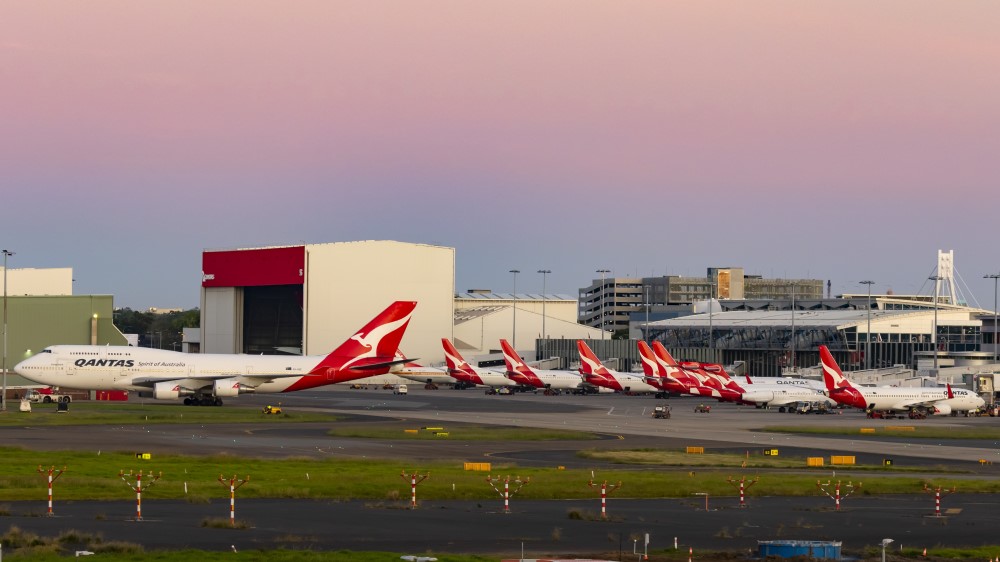
In this cross-posting from Australian Aviation’s sister title Lawyers Weekly, Jerome Doraisamy speaks to HFW partner Mert Hifzi and senior associate James Jordan, who argue the aviation industry has been made a scapegoat during the coronavirus pandemic.
With aviation having suffered such significant impacts from COVID-19, legal professionals across the board can learn from the experience of lawyers in this space.
Aviation has “somewhat unfairly been scapegoated” as a primary contributor to the global coronavirus pandemic.
That is the view of HFW partner Mert Hifzi and senior associate James Jordan, who told Lawyers Weekly that while aviation certainly served as a transmission vector enabling the virus to move from country to country, “the government reaction to the virus (or lack thereof in some cases) can widely be seen in the varying degrees of success that individual countries have had in controlling the virus”.
“While some countries moved quickly to close borders and implement wide-ranging travel bans and restrictions, other countries did not do so until recently,” the pair said.
As a result, there have been mounting challenges for lawyers in this space, with their roles proving critical as the sector attempts to navigate out of the pandemic.
There are, as a result, lessons from aviation lawyers for legal professionals in other sectors, the pair posited.

“During the first wave of virus cases, the aviation industry perhaps took a reactive approach and was often caught off guard as the initial implementation of travel bans and restrictions was poorly managed by many governments who failed to liaise with airlines and other operators.
“This caused significant issues and exposed airlines to onerous compensation obligations under passenger rights regulations as many passengers were left stranded without alternative modes of transport,” Hifzi and Jordan outlined.
“The aviation industry now has the opportunity to take a more proactive role in formulating policy and closer government liaison should be sought going forward so that operators are not surprised by sudden changes to laws and regulations.”
Many industries will be watching aviation “with a keen eye”, the pair continued, as it will serve as a “test bed” for how safe distancing and other measures can be implemented so as to reduce transmission risk.
“Any business – from F&B to hospitality and events – which [facilitates] the gathering of significant numbers of people in close quarters will be watching the measures implemented by airlines and airports to see whether we can return to a sense of normality as we continue to manage the spread of the virus,” said Hifzi and Jordan.
“While aviation is unique, it is likely that best practices developed in aviation can be adapted by other industries and lawyers in those sectors should be seeking to emulate the successes of the aviation sector of which there are likely to be many in the coming months!”
Moreover, the pair predicted that there will be a “wave” of consumer litigation based around the contraction and transmission of the virus, and lawyers in all sectors will have to be cognisant of this.
“Aviation will not be exempt from such scrutiny especially as we move into the second stage of managing the pandemic where it may be easier to highlight virus clusters due to the gearing up of contract tracing capabilities by many countries,” Hifzi and Jordan said.
“In-house teams should help facilitate and implement incident response protocols and practices, so that ongoing legal and litigation risks can be effectively managed and consumer-facing entities (i.e. airlines/airports) are able to take immediate steps to mitigate reputational damage.
“In this regard, all entities should ensure that meaningful conversations are held with their insurers and external counsel so that future risks can be effectively managed.”
In addition, the aviation sector – and other sectors – will have to be mindful of ongoing environmental concerns that were plaguing industries prior to the pandemic, and will continue to do so.
“Oil prices (and consequently jet fuel prices) have been decimated and while cheap fuel is a positive for the industry in the short-term, operators will need to balance their fiscal pressures with environmental obligations. Shifting consumer sentiment towards a desire for sustainable aviation has not disappeared and cannot be ignored,” Hifzi and Jordan said.
“Operators will also be required to comply with the International Civil Aviation Organisation Carbon Offsetting and Reduction Scheme for International Aviation which will be gradually implemented from next year and which is causing significant industry debate due to the fact that 2020 was meant to be one of the years that would be used for setting the emissions baseline which future years emission targets would be based around.
“Due to the fact that 2020 emissions from aviation have drastically reduced due to COVID-19, the industry is closely monitoring developments and decisions in this area as holding the industry to the 2020 baseline is considered unrealistic.”
To share how COVID-19 has impacted you and your business, please complete this anonymous, two-minute survey here. For more information, please contact [email protected]













